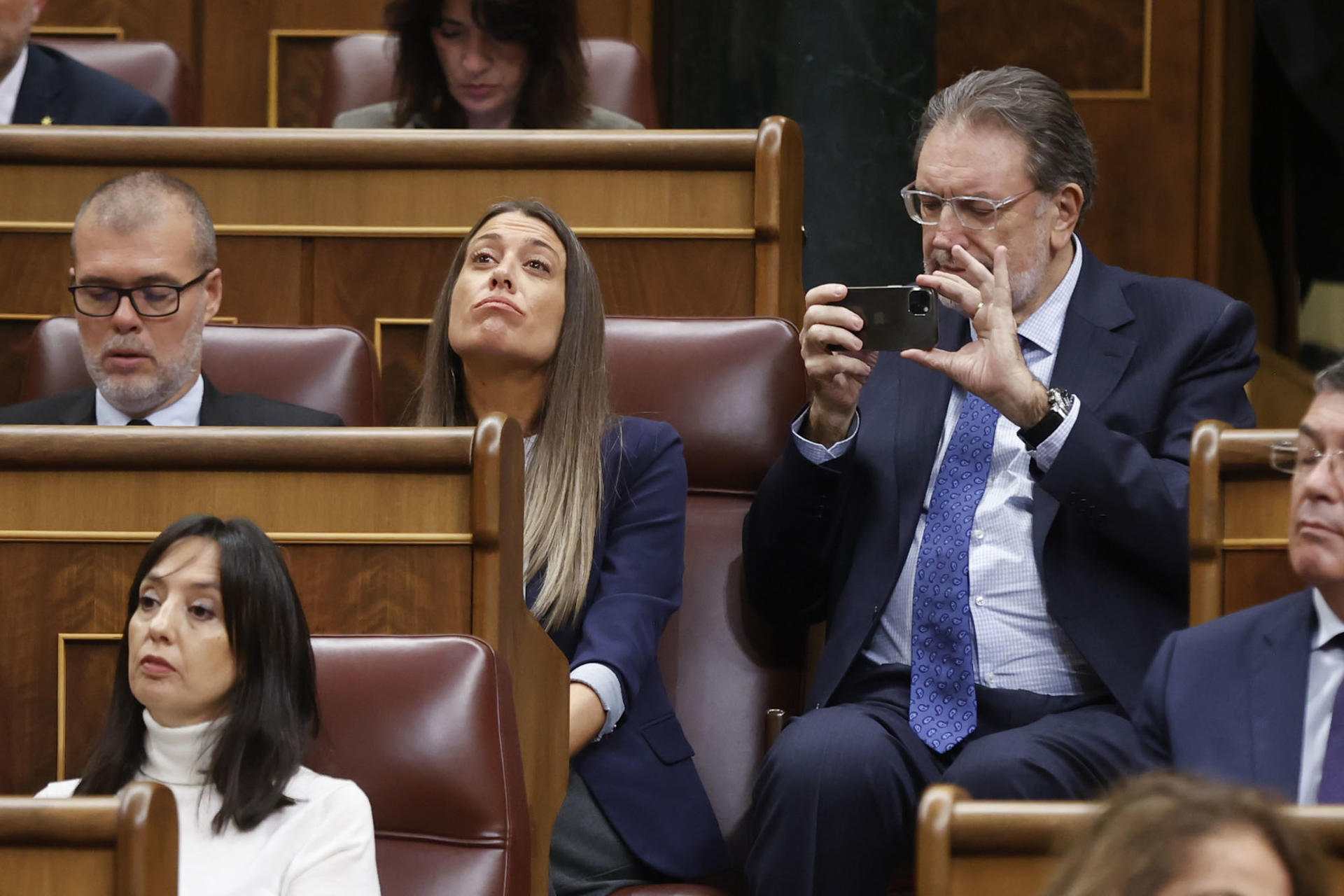The references made by the Spanish Socialist (PSOE) candidate Pedro Sánchez to the Catalan amnesty during his investiture debate speech this Wednesday have caused irritation in Together for Catalonia (Junts). Carles Puigdemont's party has warned on numerous occasions that in the agreements reached they are not looking for a pardon, but rather, the recognition of an injustice, but this was a very different approach to what Sánchez used during his major exposition in the investiture plenary session. The spokesperson for Junts, Míriam Nogueras, met this afternoon with the PSOE number three, Santos Cerdán, to address the situation, as radio station RAC1 reported and ElNacional.cat has confirmed. The doubt at the moment is the impact it may have on the investiture, given that Sánchez needs the seven vote of Junts to become Spanish prime minister in Thursday's first ballot. Some sources in Puigdemont's party point to the possibility that the seven pro-independence deputies will end up abstaining in tomorrow's vote.
On September 5th, in a speech in Brussels that set out the conditions Junts sought to impose on the investiture negotiations, exiled president Puigdemont stressed that the demand for dejudicialization of the process and the amnesty "must be done to repair an injustice, not to forget or to put an end to anything, nor to equalize the victims of these injustices with those who inflicted them".
During his speech in Congress, Sánchez referred to the amnesty as a "measure of grace" and affirmed that with his proposal they seek to promote "forgiveness". In addition, he stressed that this measure will affect both pro-independence leaders and ordinary citizens "who were dragged into the independence process", as well as the policemen charged.
Nogueras, absent in the afternoon
Pedro Sánchez's speech did not go down at all well with Junts. The party spokesperson was absent from her seat when the debate resumed after lunch with the debate between Sánchez and the leader of the opposition, Alberto Núñez Feijóo, which only increased the rumours about the impact that this discomfort could end up having.
Commentators close to Carles Puigdemont's party also expressed their discomfort with how the Spanish prime ministerial candidate handled the issue. On El Nacional TV's live coverage of events in the Spanish Congress this Wednesday, historian Agustí Colomines suggested that Sánchez was looking for a "parliamentary scare" with his words, and "he might have it." The Socialist leader was "frivolous" over the amnesty issue and the content of the accord with Junts, he told presenter Jofre Llombart.
Meanwhile, Pilar Rahola went further, and suggested that Junts should not vote in favour of the investiture on the first ballot after Sánchez's "shirt-lifting". "His speech in no way responds to the spirit, theoretically, of the pact signed in Brussels, he reduced the amnesty to a simple pardon, a generalized pardon, when it really is a correction for something very badly done by the Spanish state, that is, the repression."
Thursday's first ballot vote on Pedro Sánchez's candidacy to form a new government is expected to be held at about noon. In the event that he does not receive the confidence of an absolute majority of Spanish MPs, they will return to Congress for a second ballot, which would be held this Saturday, at which only a simple majority - more votes for than against - would secure the investiture.

